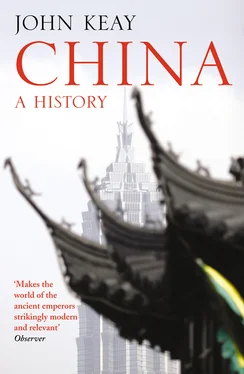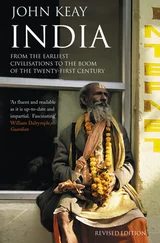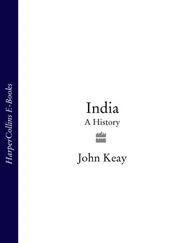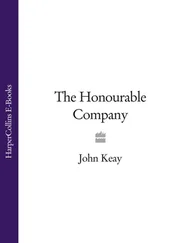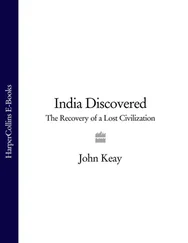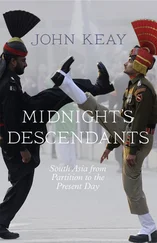Written about a hundred years after the fall of Qin, the Shiji (usually translated as ‘Records of the [Grand] Historian’) is by no means limited to that period or to what might then have been regarded as the recent past. Its 130 chapters span some 3,000 years, a remarkable perspective in a work of the second-to-first centuries BC. When later enshrined as the first of the eventually twenty-four ‘Standard Histories’ (one for each ‘legitimate’ dynasty) it served as a sort of ‘Book of Genesis’, beginning the narrative of China’s history and carrying it forward from its myth-rich dawn and the Five Emperors, through the Three (royal) Dynasties of Xia, Shang and Zhou, including the ‘Spring and Autumn’ and ‘Warring States’ periods, and on to the Qin and Han. Although it set the pattern for all the later ‘Standard Histories’, it is in fact the only one that deals with more than a single dynasty.

Not simply a dynastic record, then, it is not simply a history either. Besides recording and organising the past – and introducing such still-useful graphic conventions as year-by-year timelines and state-by-state tabulations – the ‘Grand Historian’ had much else on his mind. There were lessons to be learned, mistakes to be corrected, reputations to be revised and wrongs to be righted. It was not just a question of dishing out praise and blame or of raiding the past for ammunition with which to take potshots at the present. The Shiji was to be more than just ‘a history of the world according to Sima Qian’, rather ‘a history of the world according to history’; and the ways of history being, like those of Heaven, intricate and often hard to discern, it required very special treatment.
To represent something so vast and complex, the well-flagged themes, long linear narratives and clanking chains of causation expected by the modern reader would have been inadequate. The language itself had to be exact; truth and accuracy were paramount. But latitude in the selection and ordering of the factual material still allowed Sima Qian to nudge the reader towards his desired conclusions. So did his decidedly creative use of dialogue and dramatisation; and so did the rather demanding structure of the book. Of those 130 chapters, only twelve comprise ‘Basic Annals’. Along with the chronological tables, they provide a useful framework yet make for unsatisfactory reading without the thirty subsequent chapters devoted to the ‘Hereditary Houses’ (or ‘states’) and the seventy to biographies of notable persons. To find out exactly what is happening at any given moment – and more especially why – the reader needs to familiarise himself with the entire text (four to six volumes in translation) and to command a good supply of bookmarks. It is like trying to piece together a play with, instead of the script, a sequence of the lines assigned to one actor and then those to another and so on. This fragmented approach in no way prejudices the Shiji ’s veracity; but it does result in a lot of repetition and not a few inconsistencies, some no doubt unintentional but others apparently designed to hint at the mixed motives and conflicting viewpoints that beset all human endeavour.
In addition, recent studies have detected many of the devices noticed in earlier classics like the Shijing and Confucius’s Analects – an obsession with names and their ‘rectification’, meanings implied by allusion and the ‘correlation’ of apparently unrelated materials, and that emphasis on faithful transmission rather than innovation. But perhaps the most intriguing insight is that which interprets the Shiji as being a rival to the First Emperor’s tomb in that it too represents a model, or microcosm, of the world as then known. Here, albeit in prose, the heavens and their constellations are also represented, and likewise the empire’s rivers and waterways, its geographical divisions and its clustered high officials. As Grant Hardy puts it:
The First Emperor’s tomb was an image of the world created and maintained by bronze – the force of arms – whereas Sima Qian’s Shiji offered an alternative depiction of the world, inscribed on bamboo slips and regulated by scholarship and morality…If Sima’s creation could not match the First Emperor’s in political power, it far surpassed it in influence, and eventually the famous mausoleum was known and understood by the place it held in Sima Qian’s all encompassing bamboo-world. 2
On the other hand if, when the mausoleum is opened, its furnishings are found to exceed or contradict Sima’s description, it may be the First Emperor who has the last laugh. Already the ‘terracotta army’ has added an unsuspected military dimension. Further finds – imagine the consternation if they include books – could confound not only the Grand Historian but a hundred generations of subsequent historians.
If the First Emperor’s innermost coffin is found intact, it may even be possible to discover what he died of. But until then ‘the bamboo record’ must suffice. In 210 BC the First Emperor was still in his forties and apparently fit enough to undertake another tour of his domains. Only days before his collapse he was out shooting sea monsters on the Shandong shore. The suggestion that he was a victim of poisoning therefore seems plausible. But if this was the case, the dose was probably self-administered; for in the potions prepared for him by the experts in immortality the vital ingredient was cinnabar. A mineral rarity, cinnabar came largely from Sichuan and was used as a pigment, most notably to impart a ruddy shade of vermilion to the ink reserved for emperors. As a crystalline form of mercuric sulphide, it is also toxic, and when ingested in quantity, fatal. Gulping down the draughts that promised eternal life, the First Emperor may have been inviting a rather sudden death.
According to Sima Qian, at the first hint of indisposition Meng Yi, the chief minister and brother of the wall-building Meng Tian, had been sent post-haste from Shandong to organise ‘sacrifices to the mountains and rivers’, presumably for the emperor’s recovery. That left the imperial cavalcade in the charge of Li Si, the book-burning chancellor, assisted by Zhao Gao, a eunuch who held the important post of chief of the imperial carriages, plus Prince Huhai, the emperor’s youngest son. When the emperor expired just days after Meng Yi’s departure, Li Si proved uncharacteristically indecisive. Instead it was Zhao Gao who took the initiative. The eunuch had a score to settle with the Meng brothers; Prince Huhai, a callow youth with no redeeming qualities other than his parentage, was conveniently to hand; and Li Si, who must by now have been in his sixties, was rather easily talked into manipulating the succession.
The dead emperor’s written testament appointing another son as his heir was accordingly suppressed. So too was report of the death itself, for it was vital that the plotters reach Xianyang and secure the reins of power before the news of the emperor’s demise encouraged others to thwart them. The cavalcade therefore rumbled on towards the capital as if nothing had happened. Meals for its reclusive principal were delivered to his carriage as usual, while a wagon of fish was positioned near by to counteract the stench of rotting emperor.
On regaining the capital, the plotters swung into action. Prince Huhai was proclaimed the emperor’s designated heir and installed as the Qin Second Emperor. The First Emperor’s preferred heir was then charged with treason and, in forged orders from his father, commanded to commit suicide – which, being a truly filial son, he did. Then the Meng brothers were censured for opposing these arrangements and detained until such time as Meng Yi could be executed and Meng Tian obliged to take poison.
Читать дальше
